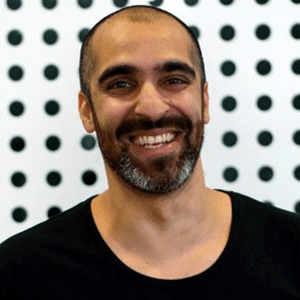

#31: Emotional wellbeing for families
Garry Thomson, currently, CEO of Uplifting Australia, is a social innovator with 25 years experience in family development and a thought leader in this space.
Tune into his podcast with Stephanie Christopher and learn what a healthy emotional system is and how to develop a practice at home for great mental health and wellbeing.
You’ll hear about tools you can apply immediately and also learn how these same practices can strengthen both your personal and professional relationships.
Hello. And welcome to TEC Live. Stephanie Christopher here, Chief Executive of The Executive Connection. TEC connects CEOs, executives and business owners to the world’s largest business leader network.
Leah: For the first time in months, Stephanie is back in the TEC Studio, the TEC Live Studio, and I’m so excited because now I actually get to see you face to face Stephanie.
Stephanie: Leah. It’s so good to be back. It’s so lovely to see a real person.
Leah: I know, instead of a screen.
Stephanie: Instead of a screen. It’s wonderful to be back. And I’m really excited about today’s podcast. Something a little different for us. We have a great guest today in Garry Thomson, who is a social innovator for the last 25 years. He has experience in family development and is an absolutely recognised thought leader in this area. Garry’s consultant to governments, not for profits. He’s an author. He’s a speaker here in Australia as well as internationally. And he’s the CEO of Uplifting Australia. Garry Thompson. Welcome to TEC Live.
Garry: Thank you, Stephanie. It’s good to be here.
Stephanie: It’s great to have you. So with a topic about emotional wellbeing for families. So why don’t we start right there with everything that’s been happening in this world over the last three months, four months? What kind of challenges do you think families are really facing in their own environment?
Garry: Well, I think to answer that it might be worth taking a couple of steps back and having a look at the kind of macro expectations around parenting. And I’m pretty sure we live in a world where we expect that providing a good, consistent, caring home. It’s good for children. And we also expect that teaching children how to read and write is a good idea and providing clothing and shelter. I think we’ve been going along, thinking about that and acting like that for a long time. So it begs the question. Why is one in four children in Australia going to grow up with a poor mental health outcome.
Stephanie: And you think that’s related directly to family at the beginning?
Garry: I do. I think when you think about the landscape of mental health in Australia, there’s a hell of a lot of money going into people with an identified problem, but we need to go way upstream to look at what’s going on within families. And one of the things that I believe is missing is that this idea of emotional wellbeing. And in fact, I would go as far to say that emotional wellbeing in a family and for a child is actually as important as learning how to read and write. And there’s many layers to this. I think the generations that came before us probably didn’t ever consider emotional wellbeing as something that is a have to have. But I believe we have a generation of parents now that probably grew up as children without it. But have recognised that it’s missing and that they’re ready to provide this to their children.
Stephanie: So Garry, tell me what you mean by emotional wellbeing?
Garry: Well, families have systems. So they have logistical systems around jobs who does the shopping and the cooking and the cleaning and picking up the kids and all the other things like that. And in that kind of logistical system, it’s often the parents that are determining what happens and telling people what they have to do and hopefully shifting the load. Families have financial systems around there, where they get their money from. And if they buy a new car, an old car, or they go on holidays or buy a house or rent a house, and again, it’s the parents, but the families also have emotional systems, which is really the way we relate to each other, how we make each other feel. If we talk about our feelings, how in tune are we with each other’s mental state? If it’s positive or negative, I was stressed.
And that’s what an emotional system is. And there’s a whole body of evidence that determines that the quality of your emotional system directly impacts the mental health of a child for the rest of their life. But not just their mental health, how well they can perform at school. Other success factors like how well they’ll do professionally and the quality of relationships they will have. So it’s something that is as important as learning how to read and write, but unlike learning how to read and write, there’s a massive expectation of that. And there’s social pressure on that. If I said to you or my friends, I’m not going to bother teaching my children, how to read and write. Everybody would jump on me and tell me I was crazy, but yet there’s no social pressure on the quality of the emotional system at home. And that’s why we’ve got a massive problem with mental health in Australia because we haven’t valued it highly enough.
Stephanie: Okay. So a couple of things, one is this more complex than that as well because families are a system, but it’s not just the parents and the children as binary relationships in that system. Because if there’s more than one child and assuming there’s more than one parent that has incredible complexity, because people are bringing their own needs and experiences and values and behaviours to every relationship. So you’ve got two parents who are different, and one or more children who might have different needs or experiences or contexts. So why don’t we start with the parents then Garry, how can two people agree on something as complex as how to design emotional wellbeing in their family?
Garry: Look, that’s a really great question. And I think what we’ve been, what we’ve managed to achieve at Uplifting Australia is bringing a simple model and a simple system that people can relate to and understand and implement at home. And we have a website and we have an online tool that’s free to access. But actually we’ve helped 50,000 people with, that if parents go to that tool, they’ll find out how to do this and how to implement it. I’ll talk about that more later, but to bring up that other point about complexity and systems, the thing about a system is the way that we behave impacts everybody all of the time. So think about a car. A car has four tyres. Now, if one tyre is flat, you can’t drive the car. Even though the other three tyres, there’s nothing wrong with them. So emotional systems are like that.
A healthy emotional system requires everybody to develop a level of competency and a level of awareness for that system to work. Now in saying that being a parent, as you’ve pointed out, it is complex and we all bring our own learnings and our attitudes and behaviours and experiences and our own baggage.
Stephanie: Staff. I was going to say stuff.
Garry: Stuff to that system. So they’re within a healthy emotional system. There is scope for us to not be perfect and to make mistakes. It’s just about how we deal with that once it’s happened. It might be useful if I talk about what our emotional system is and what, we’ve narrowed it down to four key competencies that are easy to understand and uniquely, they require the whole family to get good at these competencies. So it’s not just an intervention that the parents learn and then they go and do something and everything’s okay. It’s an action learning process and it’s a model and it’s a culture. It’s a way of behaving for life.
Stephanie: So before we get to the competencies, I’m thinking about parenting as well. There might be something that one parent is better at than the other. So say it’s building something or it’s Math’s, or it’s an English assignment or something. And you might have actually quite an explicit agreement. Oh, well, you’ll need mum to help with that because that’s her thing. Or well, we’ll get dad onto that, because he’ll be really good at that thing. Can you have that same variation in emotional well-being that one party in the family, and it might be one of the children that is particularly strong at this, has good self-awareness is able to embrace these kinds of concepts and is stronger than other people?
Garry: That, absolutely. And that is the case. And that’s certainly been the case in my family. And even though I wrote this system, that didn’t mean, like I had my strength areas and I had my challenge areas. And I think we were fortunate that my wife was strong in the areas that I was weak and I was strong in the area she was weak. So between the two of us, we had everything we needed. And then there were the children that were naturally just good at all of it, because of our awareness and our commitment to it, emotionally they developed to our level and beyond, and I think naturally as generations come through, like most adults we’d probably think they’re a little bit wiser and a little bit more clued in than their parents. So it’s kind of allowing your children to kind of overtake you in that space as well and not be threatened by it.
Stephanie: And you say children come to this naturally. Am I hearing from you, Garry, that there’s something then in the environment that kind of impacts your natural tendency as a child towards emotional wellbeing?
Garry: Absolutely. I think that, I mean, with parenting, there used to be the idea that children are born and they don’t know anything. And what we need to do is we need to teach them and tell them and control them and point them in the right direction. Otherwise, their lives won’t turn out very well. And the thing has kind of moved on from that, and what we understand now is that children are born whole and complete with everything they need to be successful already within them. And our job is to provide the right environment so that they unfold into their natural awesomeness.
Stephanie: So tell me about the competencies, the four competencies that you see as important for families.
Garry: Well, we’ve had these competencies researched by the University of Melbourne School of Positive Psychology. And there’s a really strong evidence-based to say that if this is applied consistently as a system, then you are actually setting your kids out for the best life possible. So the first competency is listening. And listening sounds simple and believe it or not, it’s actually listening is a complex system. Getting good at listening and being able to sit together and having the intention to just listen to each other means having one person speak at a time, actually being able to be really present with them.
Stephanie: So the mobile phones, not in your hand, I’m assuming. You’re not scrolling?
Garry: You’re not scrolling. There’s not interference from any other thing in that you’re able to be really present in the present moment. So as a parent, you’re not in the past, like what happened today. And you’re not in the future thinking about tomorrow. You’re just right here and right now, so good listening requires mindfulness and to really value that present moment. And it also means that you need to have that intention to listen. And there’s four types of listening as well. There’s passive listening where you’re just sitting there listening to the other person without making a sound. There’s active listening, where you might just nod your head or make little aha, just it. I’m with you. I’m listening to you. Like what you just did. Then there’s empathetic listening, which is actually feeling into the other person and being able to tune into, how they might be feeling. If I’m telling you a story about something that happened to me, you might notice that I’m feeling quite sad. So you might go, Oh, you seem sad.
And I’ll be like yeah, I am sad. So just validating using that empathy. And then there’s supportive listening, which is actually taking the empathy one step further and asking open questions like, and what was that like for you? And can I help you with that? Or do you need any support? But one of the common threats with great listening is that, at no stage am I butting in and telling you what you should do. I’m not becoming the expert in your life. I’m not sitting there finishing your sentences or I’m not sitting there thinking, well, I’ll tell you something. And if you do that now, then everything’s going to be okay for you. It’s simply just listening and holding that presence. So when a family sits and listens and speak from one at a time and has intentional listening conversations, it doesn’t matter what the subject is.
It can be as simple as something you enjoy today, something you are looking forward to, or it can be any subject you want. What’s your favourite meal? What would be your ideal holiday? Or it’s just getting good at calling that presence and intentionally listening to each other. So when there is an issue in the family, or people are upset, or if upset with each other, or there’s been something happening in the external world that needs to be discussed, or there’s an expectation hasn’t been met or whatever it is. You have these core skills of listening, which I mean are respectful, that you’re in the present moment. And when a good listening space is provided, people tend to reveal more. And the more honest, the more transparent and the more authentic. Therefore the connection is deeper and more meaningful. And you’re actually giving somebody the greatest gift of all, which is your presence in the present moment.
Stephanie: The other thing is also when you are listening well, it’s satisfying also for you as the listener I think, because you recognise what’s happening in the conversation. And I thought about it yesterday. It was interesting. And I’m far from perfect at this, but a friend texted me yesterday and said, thanks for listening the other day, something went well and I thought, do you know that’s one of the biggest compliments I think you can get? Thanks for listening, I love that. Because it doesn’t just mean, thanks for sitting there while I like talked at you.
Garry: It’s very different and you’re right. Because when you offer somebody your presence, they feel it. And there’s a different quality to the relationship than if I’m preoccupied. And you can tell when someone’s not listening to you. When you start to share something and people just jump in and go off on their tangent and you were like, not even halfway through your story and all of a sudden it’s all about them.
Stephanie: Big clam up. So what’s the second competency? Assuming we’ve nailed the listening side.
Garry: We’ve nailed the listening.
Stephanie: She says as she moves you along.
Garry: No. The second competency is around focusing on strengths and acknowledging the strengths in somebody. So what this is about is, we all have strengths. We all have gifts, and it’s about pointing them out to people and making a habit of doing that. Thanks for being responsible. Thank you for cleaning your room. I appreciate you cleaning up. That’s a really great result you got because you tried really hard. So it’s kind of putting the attention on the qualities of the person rather than the outcome. So instead of saying, you’re an amazing piano player, it’s more like, I want to acknowledge your commitment and dedication to the piano and the results are incredible, but they came through your commitment.
I see you as a person with great commitment. So there’s something about that. That’s intrinsically empowering because what you’re doing is you’re calling out the quality and the capability of the person, rather than saying, it’s the external thing that we’re recognising. So you’re awesome because you’re good at something, or you’re awesome because of the money you make or the status you have, all the power you have. The issue with that is that you constantly require people to tell you that you’re okay to feel okay, rather than owning your true essence, which is your strengths and your capabilities.
Stephanie: I like the positivity of it also, Garry, because it’s not, well, you’re the one who’s good at sport. You’re the one who’s not good at sport. It doesn’t kind of define people then in families, it allows people to evolve, I guess.
Garry: Absolutely. And there’s also a level of gratitude. That’s important there too. So when you sit as a family and you have acknowledging strengths conversation, the thing in our family connect tool suggests that you have one person at a time just sit there and practice passive listening. So then speaking, this is where being good at listening actually matters, or it’s hard to do this and you go around one family member at a time and just acknowledge a strength or something that you’re grateful for in that person. It’s a very simple thing to do, but it builds incredibly great connections and really empowers that person. Gives them confidence, gives them self-esteem, lets them know that they’re seen and really builds them up. There’s a strong evidence base that says, if we build people’s strengths and extend them from their strengths, people thrive.
And a little trap that people can fall into, particularly as a parent is, if we see that our kids aren’t doing something properly in our judgment and we criticise them for it. And we say, well, you’re not doing this. You’re not doing that. That’s not good enough. This is not okay. We can fall in the trap that, that’s the only feedback we give our children and we’re doing it for the best intentions because we believe that we’re trying to motivate them and push them to have a better life. And that’s our job. But the evidence suggests that if you’re critical with your children, it’s actually demotivational and it creates an emotional disconnect and the person gets the message really that they’re not okay the way they are and it really lowers their self-esteem, it’s about acknowledging strengths. It doesn’t mean we steer away from giving honest feedback if people are delivering on what they’ve agreed to do, or they’re not putting in the effort, but that comes up in the other competencies, but really focusing on strengths, building a culture of acknowledging people’s qualities.
Going out of your way, having these meetings weekly or fortnightly where you, I know as a parent, when my kids, I said, dad, thanks for going for work. Thanks for driving me to training. I really acknowledged how much effort you’re putting into your work. And that you have this vision for really high functioning, nice families and we really admire that. Now hearing that of your 12 year old child, it’s beautiful. I’ve enjoyed that as much as they’ve enjoyed getting that kind of feedback. And it’s just built this kind of culture within our family. That’s a positive psychology culture. We’ve all been very close and very positive with each other.
Stephanie: Exactly.
Garry: And naturally we’re great listeners.
Stephanie: And the last two competencies we can mention, or in fact, we’ll talk about the actual tool in a minute and how people can get access to it. But I think we should talk about, but what about when something goes wrong? Because sometimes things happen in a family that it’s no one’s fault. It’s not a system. It might be a medical situation or something else in the context that no one can help. I guess a counter to this and I don’t actually believe in promise. It’s that this sounds good when everything’s going okay. But what about when something awful happens or something really stressful, or someone loses their job or someone dies or someone gets sick or something awful happens, or you’re busy, you’ve got to get to work and you haven’t got time to listen because you’ve actually got to get to work to keep your job, to look after the family. How does all this work then in a less than ideal context?
Garry: Competency number three is about the emotional literacy. It’s about being able to identify and talk about your feelings. So there’s five core feelings, which are happy, sad, angry, anxious, and shame. And most people will feel every one of those every week or maybe every day. It’s really important within a healthy emotional system that there’s emotional literacy. So the third competency you have asked, we have a simple tool where you identify how you’re feeling, and then you tell a quick story about why? So I’m feeling happy today because I had a great surf this morning and it’s just put me in a really positive mood or I’m feeling angry today because something didn’t go my way at work. Well, I’m feeling anxious because I’m worried about something or I’m feeling shame because I made a massive kind of, I treated somebody poorly and I really bad about it, for example.
So, you need to be able to talk about your feelings because things will go wrong. And there will be challenges and we’re not always going to be feeling ultra positive and happy. So it’s important that feelings are something that we get good at identifying talking about. And that’s something that’s role model by every family member. If you think about the four tyres. We need all the four tyres talking about their feelings for the car to roll down the street. So as it’s important to listen, it’s important to give positive messages. It’s also important to talk about feelings and to be real about that. There is a saying you should never burden a child with a problem they can’t fix. So as a parent, you need to be discerning about how much you share. Like you may not come and say, look, I’m feeling scared because I’ve lost my job, which probably means we’re going to lose the house and we’re going to be homeless.
That’s an adult problem. It’s good that you fix that. You might say, I’m under a bit of pressure. I’m feeling anxious, but I’m going to find my way through it and then go get that support somewhere else. But talking about feelings is really how you deal with what you’re suggesting. If somebody dies, if you lose a job, when things go sideways, you need to be able to be real about that. And talk about that. What that does is it enables us all to connect with each other and understand what’s going on. Like if I’m really shitty about something and I don’t talk about it, then everyone’s like, well, there’s something wrong with dad.
Stephanie: He must be mad at me.
Garry: Or it’s really intense and I’m tired and I go, are you okay? And I go, yeah I’m fine. I’m obviously not fine. So just be able to go, I’m a bit angry at the moment. I don’t feel like I want to talk about it. I just need some space. I’ll talk about it later. And then everyone’s like, okay, cool. I’ve got that. I get that. I can connect to that. And I’m here if you need me.
Stephanie: I think it’s a really good point about as long as you’re not burdening the children, they’ll try to make yourself feel better by putting it on them.
Garry: Well, burdening your partner or burdening anybody really at work colleague or whatever.
Stephanie: That’s good. And what about number four? What’s the fourth competency?
Garry: Fourth one is an idea that within a healthy emotional system, there should not be a power imbalance. So what that means is, as a parent, we’re equally accountable for how we behave and how we make other people feel as the children are. And I think in generations gone by, there’s been like a double standard, like don’t speak to me like that, don’t be rude. While we’re being rude and speaking to them in a bad way. So the fourth competency talks about personal responsibility. So it’s about being willing to sit down and say what the idea in our tool is to have apology meetings. Does anybody have anything they want to apologise for? And I might go, well, actually, Stephanie, I want to say, sorry to you for the way I spoke to the other day.
I know it wasn’t very nice. And then to ask you, so what was that like for you, Stephanie? And then you would tell me how you felt. Well, it made me feel sad and I would be able to go, yeah, this is what was going on for me. Can you forgive me? So you reconnect, you heal and grow and understand each other. You forgive and you move on in a healthy way. It’s not realistic that you’re always going to be in a great mood and treat people perfectly all of the time. I know I don’t, but if you’re willing to come together, apologise, listen to how maybe other person feel, explain what was going on for you, seek a level of understanding, empathy and forgiveness. Come up with a better way of communicating that or dealing with that next time moving forward. Then what you’re doing is you’re turning something that was quite awful into something that’s very beautiful.
Stephanie: Boy, that one need some deeper thought because that doesn’t necessarily come naturally in families. What an interesting model. I love the science behind it. I love that there’s some validated research behind it. And I think that this is something that anyone could explore. And you’ve said that these tools are available to anyone. Is that on the Uplifting Australia website, is it?
Garry: You can get there through there, or you can go directly to www.familyconnect.org.au.
Stephanie: So just kind of recapping on the four competencies. There’s listening, there’s a positive approach. It’s looking at people’s strengths and encouraging that. The third one is about emotional literacy and being able to everyone in the family, being able to name and express their feelings. And the fourth one is a really interesting one there about power and ensuring that there’s an equal distribution of power within the system. It’s not sort of.
Garry: Within the emotional system.
Stephanie: Within the emotional system, of course, because logistics, there’s certain power that no, you’re not going to that party on Friday night or whatever.
Garry: Correct.
Stephanie: The party that comes up. So Garry, that brings me to something that you have spoken to me about before and that’s teenagers. And that you’ve said how critical it is for families to have this emotional wellbeing system up and running before the teenage years. So that, that becomes the family culture.
That’s the way the family interacts, and then you’re ready to navigate what can be a very tricky time for families. And I think that makes great sense. Garry, I love the practicality of what you’re talking about. I love the availability of the tools that’s really generous, and I think it really speaks to your purpose. And I am so appreciative to you for speaking with us today on TEC Live. So Garry Thomson, thank you very much. So that’s TEC Live for today. CEOs are in the business of making decisions and leadership is the art of execution. I’m Stephanie, Christopher, and look forward to talking to you next time.



